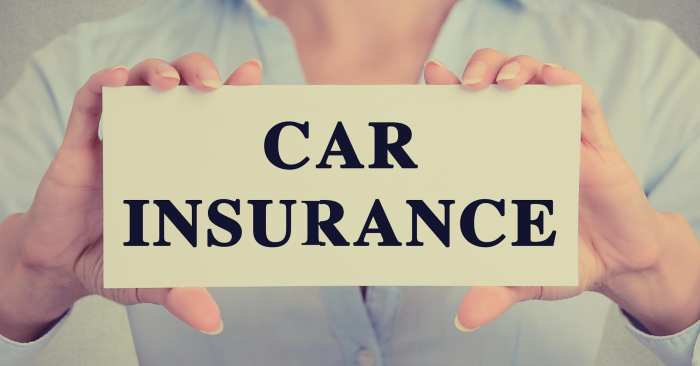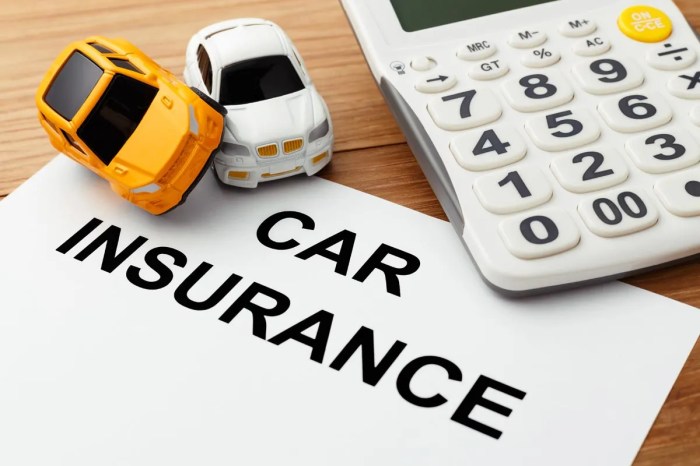Free quote auto insurance offers a valuable opportunity to compare prices and find the best coverage for your needs. By requesting a free quote, you can explore different insurance options, understand the factors influencing premiums, and potentially save money on your auto insurance.
Table of Contents
The process of obtaining a free quote is straightforward. You can easily request a quote online by filling out a simple form or by calling an insurance company directly. By providing some basic information about yourself and your vehicle, you’ll receive a personalized quote within minutes.
Understanding “Free Quote”: Free Quote Auto Insurance
A “free quote” in the context of auto insurance is a personalized estimate of the cost of your insurance policy, provided without any obligation to purchase. It’s a valuable tool that empowers you to compare different insurance options and find the best coverage for your needs at the most competitive price.
Value Proposition of Free Quotes, Free quote auto insurance
Free quotes are a valuable tool for potential customers seeking auto insurance for several reasons:
- Saves Time and Effort: Obtaining a free quote eliminates the need for phone calls or in-person visits to multiple insurance companies. You can easily get quotes from various insurers online or through a single platform.
- Facilitates Comparison: Free quotes allow you to compare prices and coverage options from different insurers side-by-side, enabling you to make an informed decision.
- Identifies Potential Savings: By comparing quotes, you can identify potential savings and choose the policy that best fits your budget and needs.
- No Obligation: Free quotes are non-binding, meaning you are under no obligation to purchase the policy after receiving the quote.
Common Misconceptions Surrounding Free Quotes
There are a few common misconceptions surrounding free quotes that are important to address:
- “Free quotes require personal information”: While some basic information is usually required for a quote (e.g., driver’s license, vehicle details), it’s not always necessary to provide sensitive information like your social security number.
- “Free quotes are not accurate”: Free quotes are based on the information you provide, and they are generally accurate. However, it’s important to ensure that you provide accurate information to receive an accurate quote.
- “Free quotes are a marketing ploy”: While insurance companies use free quotes as a marketing tool, they are also a valuable service for potential customers. You can choose to accept or decline a quote without any pressure.
The Process of Getting a Free Quote
Getting a free auto insurance quote is a simple and straightforward process. It allows you to compare different insurance plans and find the best coverage for your needs at the most competitive price. Whether you prefer the convenience of online quotes or the personalized attention of a phone call, the process is designed to be easy and efficient.
Getting a Free Quote Online
Getting a free auto insurance quote online is a quick and convenient way to compare different insurance plans. You can typically obtain a quote within minutes by providing basic information about yourself and your vehicle. Here’s a step-by-step guide:
- Visit the insurance company’s website.
- Click on the “Get a Quote” or “Free Quote” button.
- Fill out the online form with your personal information, including your name, address, date of birth, and driving history.
- Provide details about your vehicle, such as the make, model, year, and VIN (Vehicle Identification Number).
- Choose the desired coverage levels and any additional options, such as roadside assistance or rental car coverage.
- Submit the form, and the insurance company will generate a free quote.
Getting a Free Quote Over the Phone
If you prefer to speak with a representative directly, you can get a free quote over the phone. Here’s how:
- Call the insurance company’s customer service line.
- Provide your personal information, including your name, address, date of birth, and driving history.
- Share details about your vehicle, such as the make, model, year, and VIN (Vehicle Identification Number).
- Discuss your desired coverage levels and any additional options you may want.
- The representative will generate a free quote based on your information.
Tips for Getting Accurate and Personalized Quotes
To ensure you receive accurate and personalized quotes, consider these tips:
- Be honest and accurate when providing your information.
- Provide all relevant details about your driving history, including any accidents or violations.
- Compare quotes from multiple insurance companies.
- Ask about any discounts you may be eligible for, such as safe driver discounts or multi-car discounts.
- Review the quote carefully before making a decision.
Factors Affecting Auto Insurance Quotes
Your auto insurance premium is not a fixed amount. It’s calculated based on several factors that assess your risk as a driver. Understanding these factors can help you make informed decisions to potentially lower your premium.
Driving History
Your driving history is a significant factor in determining your auto insurance premium. A clean driving record with no accidents or violations will result in lower premiums. Conversely, a history of accidents, traffic violations, or even DUI convictions will lead to higher premiums.
- Accidents: Each accident, regardless of fault, increases your risk profile and, consequently, your premium. The severity of the accident, such as a minor fender bender or a serious collision, also plays a role.
- Traffic Violations: Speeding tickets, reckless driving, and other traffic violations also raise your premium. Insurance companies consider these violations as indicators of risky driving behavior.
- DUI Convictions: DUI convictions are among the most severe offenses that can significantly impact your insurance premium. These convictions demonstrate a disregard for safety and can result in hefty premium increases or even policy cancellation.
Vehicle Type
The type of vehicle you drive also plays a role in your insurance premium. Some vehicles are more expensive to repair or replace, and some are more prone to theft or accidents.
- Vehicle Value: More expensive vehicles generally have higher premiums because they cost more to insure against damage or theft. This is why luxury cars or high-performance vehicles typically have higher premiums compared to standard models.
- Safety Features: Vehicles equipped with advanced safety features like anti-lock brakes, airbags, and electronic stability control are often considered safer and can qualify for lower premiums. Insurance companies may offer discounts for vehicles with these features.
- Vehicle Age: Older vehicles, particularly those with higher mileage, are generally more likely to experience breakdowns or require repairs. As a result, insurance premiums for older vehicles may be higher than for newer vehicles.
Location
Where you live can also impact your auto insurance premium. Factors like population density, traffic congestion, crime rates, and weather conditions can influence the risk of accidents and claims.
- Urban vs. Rural: Urban areas with high population density and heavy traffic often have higher accident rates, leading to higher premiums. Rural areas with lower population density and less traffic may have lower premiums.
- Climate: Areas prone to severe weather events like hurricanes, tornadoes, or hailstorms may have higher premiums due to the increased risk of damage to vehicles. Conversely, areas with milder climates may have lower premiums.
- Crime Rates: Areas with high crime rates, particularly those with high rates of vehicle theft, may have higher premiums to cover the risk of theft or vandalism.
Benefits of Comparing Free Quotes
Obtaining multiple free quotes from different auto insurance providers is a smart strategy that can save you significant money on your premiums. By comparing quotes, you gain valuable insights into the market, identify the best deals, and ensure you’re getting the most comprehensive coverage for your needs.
Getting a free quote for auto insurance is a smart move, allowing you to compare prices and coverage options. While you’re taking care of your insurance needs, don’t forget about your vision health! Check out humana vision care plan to ensure you have the coverage you need for eye exams and glasses. After all, taking care of your vision is just as important as protecting your vehicle.
Advantages of Comparing Free Quotes
Comparing free quotes from multiple insurers offers several advantages that can significantly benefit you:
- Discover Competitive Rates: Different insurance companies have varying pricing structures based on their risk assessments and business models. By comparing quotes, you can identify insurers offering the most competitive rates for your specific profile, potentially saving hundreds or even thousands of dollars annually.
- Uncover Hidden Discounts: Insurance companies often offer various discounts based on factors like good driving records, safety features in your car, or bundling multiple insurance policies. Comparing quotes can reveal these discounts you might not be aware of, leading to further savings.
- Compare Coverage Options: Insurance policies vary in the level of coverage they provide. By comparing quotes, you can understand the different coverage options available and choose the plan that best suits your needs and budget. This ensures you have adequate protection in case of an accident or other unforeseen events.
- Negotiate Better Rates: Armed with multiple quotes, you can leverage the competition to negotiate better rates with your current insurer. By showing them that you’re willing to switch providers, you can potentially persuade them to offer you a more competitive price to retain your business.
Real-World Examples of Savings
Here are real-world examples of how comparing quotes led to significant savings:
- Sarah, a young driver with a clean record, was paying $1,200 annually for her car insurance. After comparing quotes, she found a policy with another insurer for $800, saving her $400 per year.
- John, a homeowner with a good driving history, bundled his home and auto insurance with the same company. However, by comparing quotes, he realized he could save $200 annually by separating his policies and opting for different providers.
Types of Auto Insurance Coverage

Understanding the different types of auto insurance coverage is crucial for making informed decisions about your policy. By understanding the benefits and limitations of each coverage, you can tailor your policy to your specific needs and ensure you have the right protection in case of an accident.
Types of Auto Insurance Coverage
Auto insurance policies typically include a combination of coverages that provide financial protection against various risks associated with owning and operating a vehicle. Here’s a breakdown of common types of auto insurance coverage:
- Liability Coverage: This coverage protects you financially if you are at fault in an accident that causes injury or damage to others. It covers the other driver’s medical expenses, property damage, and legal costs. Liability coverage is typically divided into two parts: bodily injury liability and property damage liability.
- Collision Coverage: This coverage pays for repairs or replacement of your vehicle if it is damaged in an accident, regardless of who is at fault. This coverage is optional and may be required by your lender if you have a car loan.
- Comprehensive Coverage: This coverage protects your vehicle against damage caused by events other than accidents, such as theft, vandalism, fire, or natural disasters. Like collision coverage, comprehensive coverage is optional.
- Uninsured/Underinsured Motorist Coverage: This coverage provides financial protection if you are involved in an accident with a driver who is uninsured or underinsured. It covers your medical expenses, lost wages, and property damage.
- Personal Injury Protection (PIP): This coverage, also known as “no-fault” insurance, covers your medical expenses and lost wages after an accident, regardless of who is at fault. PIP coverage is typically required in some states.
- Medical Payments Coverage (Med Pay): This coverage pays for your medical expenses, regardless of who is at fault, up to a certain limit. It is a supplemental coverage that can be added to your policy.
- Rental Reimbursement Coverage: This coverage provides you with money to rent a vehicle while your car is being repaired after an accident.
- Roadside Assistance Coverage: This coverage provides assistance for services such as towing, flat tire changes, and jump starts.
Benefits and Limitations of Auto Insurance Coverages
The following table summarizes the benefits and limitations of each type of auto insurance coverage:
| Coverage | Benefits | Limitations |
|---|---|---|
| Liability Coverage | Protects you financially if you cause an accident. | Only covers damages to others, not your own vehicle. |
| Collision Coverage | Pays for repairs or replacement of your vehicle after an accident, regardless of fault. | May have a deductible you need to pay before coverage kicks in. |
| Comprehensive Coverage | Protects your vehicle against damage from non-accident events. | May have a deductible you need to pay before coverage kicks in. |
| Uninsured/Underinsured Motorist Coverage | Protects you financially if you are hit by an uninsured or underinsured driver. | May have a deductible you need to pay before coverage kicks in. |
| Personal Injury Protection (PIP) | Covers your medical expenses and lost wages after an accident, regardless of fault. | May have limits on the amount of coverage. |
| Medical Payments Coverage (Med Pay) | Pays for your medical expenses after an accident, regardless of fault. | May have limits on the amount of coverage. |
| Rental Reimbursement Coverage | Provides you with money to rent a vehicle while your car is being repaired. | May have limits on the amount of coverage. |
| Roadside Assistance Coverage | Provides assistance for services such as towing, flat tire changes, and jump starts. | May have limits on the number of services provided. |
Catering to Specific Needs
Different coverage options cater to specific needs. For example, if you drive an older vehicle, you might choose to forgo collision and comprehensive coverage, as the cost of repairs might exceed the value of the car. If you have a newer vehicle or a high-value car, you may want to consider higher coverage limits for collision and comprehensive coverage. If you have a high-risk driving history, you may want to consider increasing your liability coverage limits to protect yourself financially in case of an accident.
Tips for Saving on Auto Insurance

Saving money on your auto insurance premiums is a smart move, and there are several ways to achieve this. By understanding how insurance companies calculate rates and taking proactive steps, you can significantly reduce your costs.
Driving Habits and Safety Features
Your driving habits play a significant role in determining your insurance premiums. Safe driving practices are directly correlated with lower insurance rates. Here’s how:
- Safe Driving Record: A clean driving record with no accidents or traffic violations is a major factor in obtaining lower rates.
- Defensive Driving Courses: Completing a defensive driving course can demonstrate your commitment to safe driving, often leading to discounts.
- Limited Mileage: If you drive less frequently, you are less likely to be involved in an accident. Some insurers offer discounts for low-mileage drivers.
- Vehicle Safety Features: Modern vehicles are equipped with advanced safety features that reduce the severity of accidents and injuries. These features, such as anti-lock brakes, airbags, and stability control, can lead to lower insurance premiums.
Leveraging Discounts and Promotions
Insurance companies offer a variety of discounts to incentivize safe driving practices and customer loyalty. Here are some common discounts:
- Good Student Discount: Maintaining good grades can earn you a discount, as insurers recognize the correlation between academic success and responsible behavior.
- Multi-Car Discount: Insuring multiple vehicles with the same company often results in a discount.
- Multi-Policy Discount: Bundling your auto insurance with other insurance policies, such as homeowners or renters insurance, can lead to significant savings.
- Safe Driver Discount: Maintaining a clean driving record for a specified period can qualify you for a safe driver discount.
- Loyalty Discount: Insurers often reward long-term customers with loyalty discounts.
- Payment Discount: Paying your premium in full or opting for automatic payments can sometimes lead to a discount.
Choosing the Right Insurance Provider

Finding the right auto insurance provider is crucial for ensuring you have the protection you need at a price that fits your budget. With so many insurance companies vying for your business, it can be overwhelming to make the best choice. This section will guide you through the key factors to consider when selecting an insurance provider, helping you make an informed decision.
Comparing Insurance Companies
It’s essential to compare different insurance companies to find the best fit for your needs. Consider these factors:
- Customer Service: A good insurance company should have a reputation for excellent customer service. Look for companies with high customer satisfaction ratings, responsive customer support, and easy-to-navigate websites.
- Claims Handling: How smoothly and efficiently a company handles claims is a critical factor. Research their claims process, average claim settlement times, and customer reviews on claim handling.
- Financial Stability: It’s vital to choose a financially stable insurance company. Look for companies with strong ratings from independent agencies like AM Best or Standard & Poor’s. A financially sound company is more likely to be able to pay out claims in the event of an accident.
Researching and Evaluating Insurance Providers
Here’s how to research and evaluate insurance providers:
- Online Reviews: Websites like Consumer Reports, J.D. Power, and the Better Business Bureau provide valuable insights into customer experiences with different insurance companies.
- Financial Ratings: Check the financial stability of insurance companies by looking at their ratings from agencies like AM Best, Standard & Poor’s, and Moody’s. These ratings assess a company’s ability to meet its financial obligations.
- Compare Quotes: Get quotes from multiple insurance companies to compare prices and coverage options. Use online comparison tools or contact companies directly.
- Ask for Recommendations: Seek recommendations from friends, family, or colleagues who have experience with different insurance providers.
Understanding Policy Terms and Conditions
Navigating the world of auto insurance can feel overwhelming, especially when you encounter terms like deductibles, premiums, and coverage limits. These terms are crucial to understanding your policy and knowing what to expect in case of an accident.
Understanding Common Policy Terms
Understanding these terms is essential for making informed decisions about your auto insurance.
- Deductible: This is the amount you pay out-of-pocket before your insurance coverage kicks in. For example, if you have a $500 deductible and your car is damaged in an accident costing $2,000, you’ll pay $500 and your insurance company will cover the remaining $1,500. A higher deductible usually translates to lower premiums, while a lower deductible means higher premiums.
- Premium: This is the amount you pay regularly (typically monthly or annually) to maintain your insurance coverage. Premiums are calculated based on various factors, including your driving history, vehicle type, location, and coverage options.
- Coverage Limits: These define the maximum amount your insurance company will pay for a specific type of claim. For example, your policy might have a $100,000 limit for liability coverage, meaning the insurance company will pay up to $100,000 for injuries or property damage you cause to others in an accident.
The Importance of Reading and Understanding Policy Documents
Your insurance policy is a legally binding contract outlining your rights and responsibilities. It’s crucial to read and understand your policy document thoroughly to avoid surprises and ensure you’re adequately protected.
- Know Your Coverage: Carefully review the details of your coverage, including the specific types of coverage you have, their limits, and any exclusions or limitations. This will help you understand what your insurance company will cover and what you’ll be responsible for in case of an accident.
- Understand Your Obligations: Your policy document will Artikel your responsibilities as a policyholder. This includes things like notifying your insurance company in case of an accident, cooperating with claims investigations, and providing accurate information. Failure to meet these obligations could affect your coverage or lead to claim denial.
- Clarify Any Questions: If you have any questions about your policy, don’t hesitate to contact your insurance company for clarification. It’s better to be safe than sorry and ensure you fully understand the terms and conditions of your policy.
How Policy Terms Can Affect Claims Processing
Understanding policy terms is essential for a smooth claims process. Here are some examples of how policy terms can affect your claim:
- Deductibles: When you file a claim, you’ll be responsible for paying your deductible before your insurance coverage kicks in. A higher deductible means you’ll pay more out-of-pocket, but you’ll likely have lower premiums. A lower deductible means you’ll pay less out-of-pocket but your premiums will be higher.
- Coverage Limits: If the cost of repairs or damages exceeds your coverage limit, you’ll be responsible for paying the difference. This is why it’s important to choose coverage limits that meet your needs and financial situation.
- Exclusions and Limitations: Your policy may have specific exclusions or limitations that restrict coverage for certain situations. For example, your insurance may not cover damages caused by wear and tear or if you’re driving without a valid license. It’s important to be aware of these limitations to avoid surprises during the claims process.
Resources and Additional Information
You’ve learned about free auto insurance quotes, how to get them, and the factors that affect them. Now, let’s explore where to find more information and who to contact for assistance.
This section provides you with valuable resources to enhance your understanding of auto insurance and empower you to make informed decisions.
Reputable Resources for Auto Insurance Information
- Insurance Information Institute (III): The III is a non-profit organization that provides a wealth of information about insurance, including auto insurance. Their website offers articles, reports, and educational resources to help consumers understand various insurance concepts.
- National Association of Insurance Commissioners (NAIC): The NAIC is a regulatory body for insurance in the United States. Their website provides information on insurance regulations, consumer protection, and resources for filing complaints.
- State Insurance Departments: Each state has its own insurance department that regulates insurance companies operating within the state. You can find contact information for your state’s insurance department on the NAIC website.
- Consumer Reports: Consumer Reports provides independent ratings and reviews of various products and services, including auto insurance. Their website offers articles, comparisons, and recommendations to help consumers choose the best insurance providers.
Contact Information for Consumer Protection Agencies and Insurance Regulators
- National Consumer Law Center (NCLC): The NCLC is a non-profit organization that advocates for consumer rights and provides legal assistance to consumers. Their website offers resources on insurance issues and consumer protection.
- Federal Trade Commission (FTC): The FTC is a federal agency that protects consumers from unfair and deceptive business practices. Their website offers information on consumer rights and how to file complaints.
- Your State Attorney General’s Office: Each state has an Attorney General’s Office that protects consumers from fraud and unfair business practices. You can find contact information for your state’s Attorney General’s Office online.
Seeking Professional Advice from Insurance Brokers or Agents
- Independent Insurance Brokers: Independent brokers represent multiple insurance companies and can help you compare quotes from different providers. They are not tied to any specific company and can provide impartial advice.
- Insurance Agents: Insurance agents represent a single insurance company. They can provide information about their company’s products and services and help you find the best coverage for your needs.
By taking advantage of free quotes, you can empower yourself to make informed decisions about your auto insurance. Remember to compare quotes from multiple insurers, understand the factors affecting premiums, and choose a policy that provides the coverage you need at a price you can afford.


